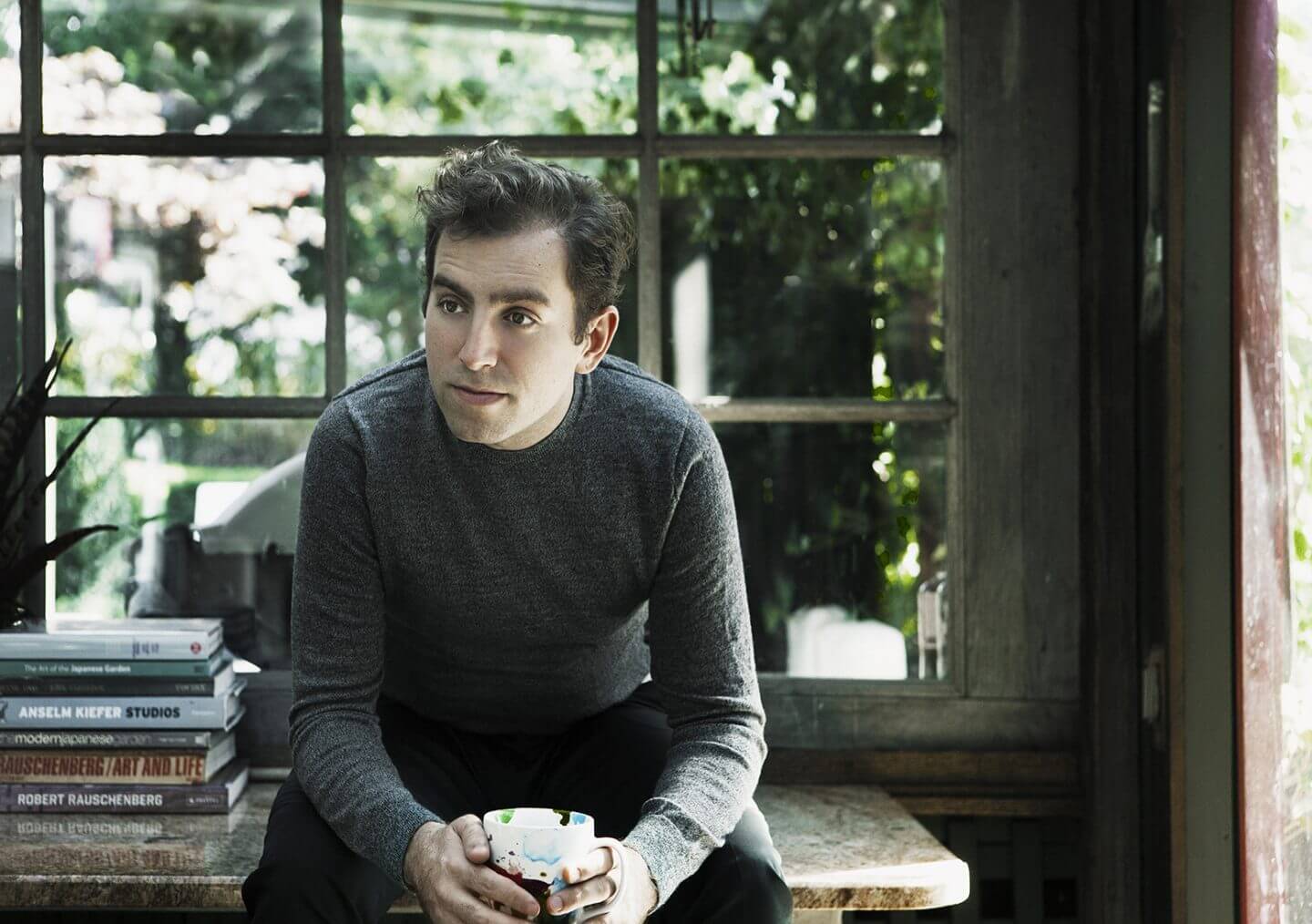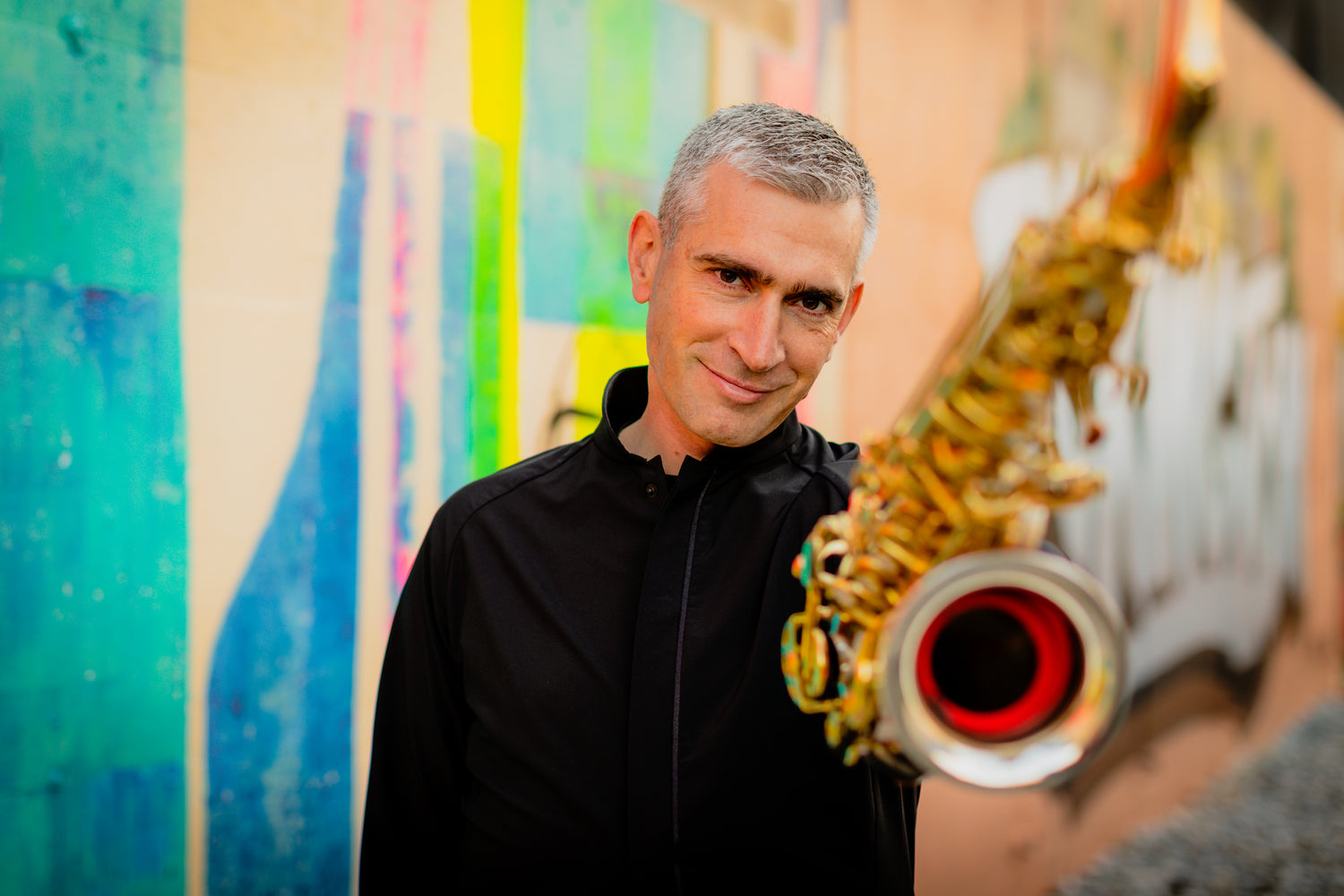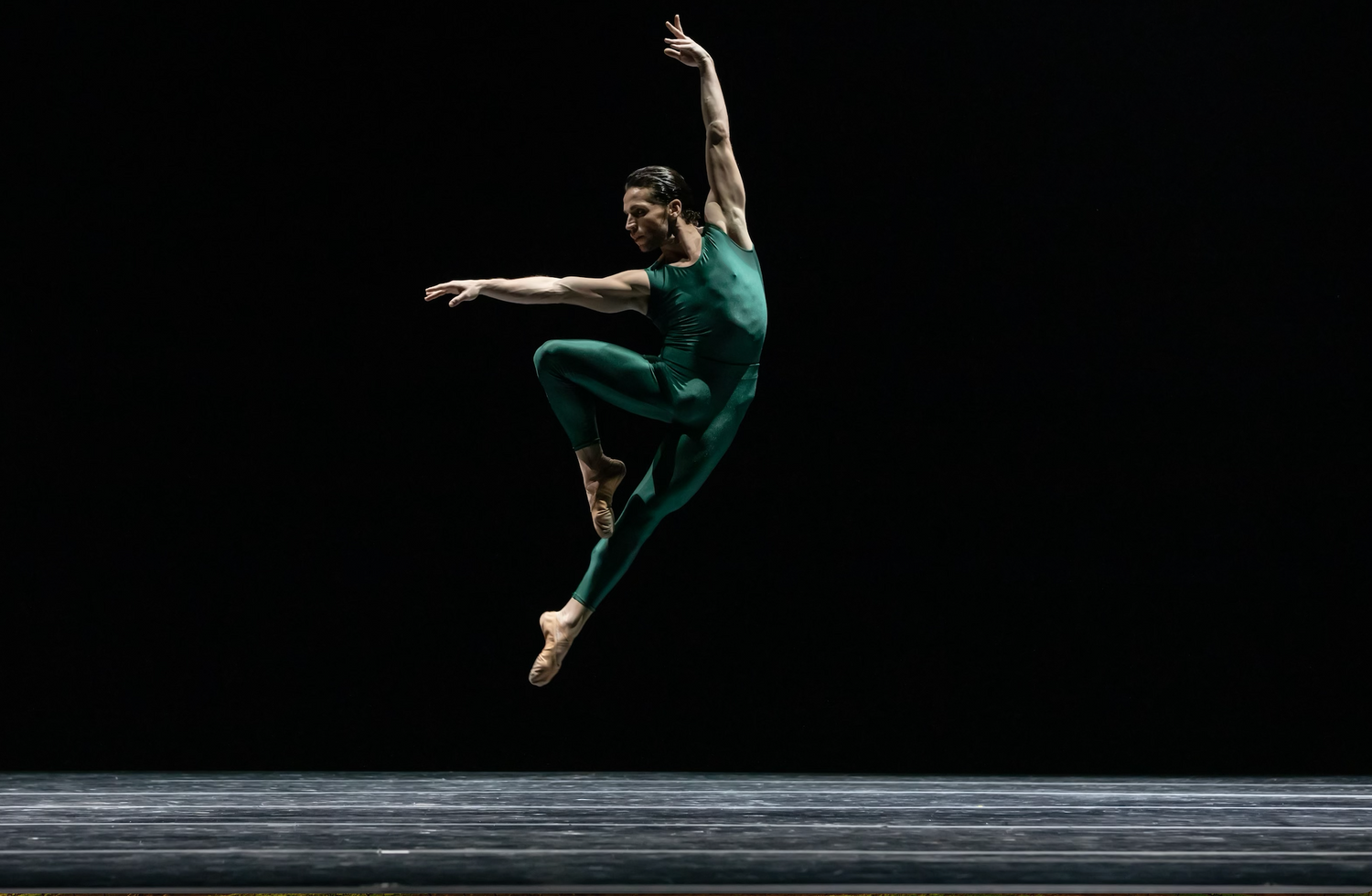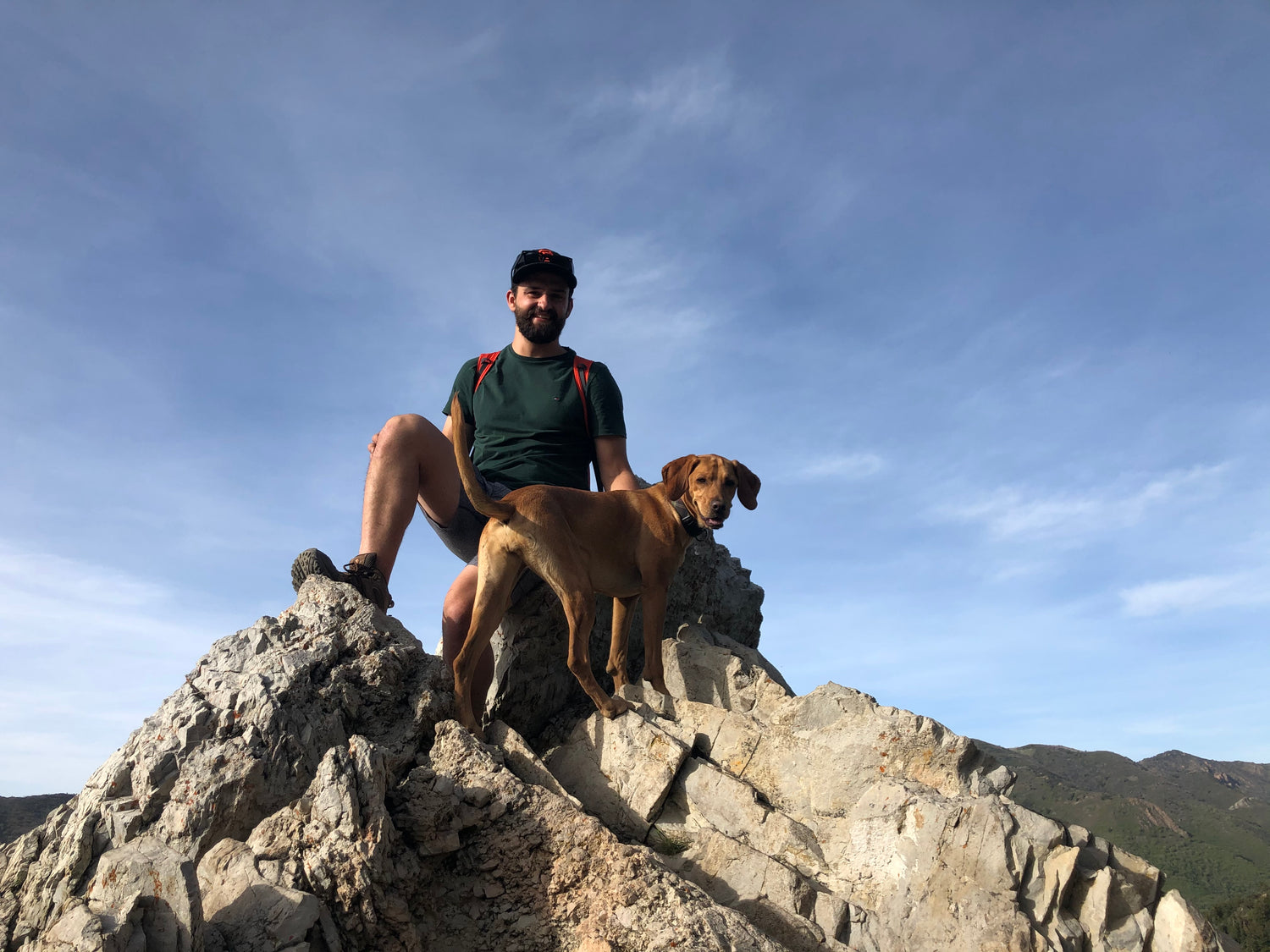Though his resume is lengthier than a CVS receipt, Cuban-American cellist Tommy Mesa is a mere 31 years old. When I joked that if I hadn’t seen photos of him before our interview, I would’ve guessed him to be in his 50s purely due to his long list of accomplishments, he quipped back, “For what it’s worth, I feel like I’m in my 50s.”
“I feel tired,” he clarified, laughing. “I need to run on a treadmill or something.”
It was understandable. When we spoke, he had arrived on a 4:00 am flight to Miami and was preparing to pound copious cups of coffee. The Miami trip was a brief jaunt home to see his family, during his typical whirlwind of travel around the nation to perform.
Ironically, the cello came purely by accident for Mesa. He was an athlete growing up, playing everything from hockey to soccer to tennis, but had no interest in music, aside from a slight desire to try the drums. “I wanted to play drums and be in the school band,” said Mesa, “but I accidentally picked orchestra on the class selection sheet. I walked in the first day of class, and I was like, ‘What the hell is this?’”
He ended up having to stay in the orchestra class because the band was already full. Mesa played violin for a month (sounding like a “dying cat,” by his own admission) and then switched to cello. Before long, he was hooked, staying after school to practice, playing constantly during his free time. Eventually, he left home in Miami to attend Walnut Hill School for the Arts, a boarding school in Massachusetts, and study the cello in earnest.
“A random mistake ended up being my career,” he said, chuckling.

Cultivating a Cuban-American Voice
Following the accident that started his career, Mesa went on to graduate from the prestigious Juilliard School, earn a master's degree from Northwestern, enroll at Manhattan School of Music for his doctorate, and perform with the LA Philharmonic, Philadelphia Orchestra, Cleveland Orchestra, and Indianapolis Symphony Orchestra, among countless others.
He also won the $50,000 First Prize in the 2016 Sphinx Competition and both the Astral Artists 2017 National Auditions and the Alhambra Orchestra Concerto Competition.
Today, among a plethora of other gigs, he tours the country as the principal cellist for the Sphinx Virtuosi, a renowned chamber orchestra made up of the nation’s top Black and Latinx classical soloists…
But despite all this success, music was definitely not in his genes.
“My parents were lawyers, nightclub owners, lighting stage designers, taxi cab drivers,” he said. “But never music.” Mesa is the oldest of five. He has three sisters and a brother, and not a single one of his siblings is a musician either. While he might not come from a musical background, his cultural heritage is extremely important to him. His father was born in Cuba and emigrated to the United States at a young age.
A large part of his passion for performing with Sphinx Virtuosi is due to the ethnically diverse nature of the orchestra. “Their whole mission is elevating music by Black and Latin composers in the concert hall stages to be heard by as many people as possible,” he said, “and I love that. Life is much more exciting when I can bring some of my roots into the concert hall.”
“A big part of my career going forward,” Mesa added, “is going to be cultivating the Cuban voice in classical music.”
Somewhat ironically, Mesa hasn’t actually been to Cuba himself. But this is largely out of respect for his father, who is adamantly opposed to the idea. “Every time I tell him I want to go, my dad says, ‘Don’t do it. You’re only supporting the Cuban government.’ There’s trauma there, with my dad, which I understand and respect.” But someday, Mesa admitted, he’s going to have to put his father’s concerns aside and visit Cuba. When that will be, he’s not sure.
A large part of his heritage is also his connection to Cuban food. “The steak, onions, rice, beans, plantains… That was my comfort food growing up. I used to watch my grandmother make this food as a kid.”

His passion for food extends beyond Cuban cuisine, however. If he wasn’t a musician, Mesa believes he’d be a chef. “High cuisine is a craft I feel connected to,” he said. When I told him that I’ve heard the same connection to cuisine from other classical musicians, such as Italian pianist Alessio Bax (not to mention Coregami founder Kevin Yu), Mesa was surprised, but said that it made sense.
“If you’re interested in a craft, that kind of detail work goes across the board,” he said. “You can obsess over one little thing. Chefs obsess over how a sauce is prepared, and that’s just a tiny part of a dish. It’s the same way a musician might obsess over a single measure of a piece of music for an hour.”
As a Cuban, coffee is in his blood as well. His father is unable to sleep unless he drinks a cup of coffee each night before bed, and Mesa was drinking “very strong coffee from a very young age.”
“Of course, Cuban coffee is half sugar and half coffee,” he noted, chuckling.
But today, coffee is perhaps the one aspect of Cuban culture Mesa has put to the side. He recently has begun switching to green tea, admitting later in our conversation that he had decided to wake up with a cup of tea in lieu of coffee, despite his early morning flight. “Sometimes I’m fine with coffee before a performance, sometimes it’s too much. I’m finding tea is much better, it doesn’t hit you as strongly, but there’s a longevity to it that I appreciate.”
On that note, health is important to Mesa, and he makes a point of inserting some daily cardio and weightlifting into his busy travel schedule, eating clean foods, and minimizing caffeine (hence the switch to green tea). But he’s also cognizant of the rigorous mental toll that the musician’s lifestyle can take on an individual.
“You dive into this life,” he said, “and suddenly you’re constantly thinking about practicing every minute of the day, and you’re like ‘Am I healthy?’”

Old School Player with New School Attitude
Talking to Mesa, one is confronted with conflicting auras. On one hand, he’s a refined, classical musician, someone who has studied and performed with the best in the nation and is still only in the early stages of his career.
Yet he remains decidedly laid-back. He prefers “Tommy” to Thomas, though you’ll see Thomas used on his website and most other media. Photos on his website show a clean-cut fellow with a wistful, far-off look in his eye, clad exclusively in blazers and button-downs.
On Instagram, however, he often posts photos playing in a t-shirt and shorts, cracking jokes in the captions. “I don’t think I’ve ever worn a flamingo bathing suit with a blazer, so why not document it with Brahms,” he wrote below a recent post. Another video shows him practicing with a small stuffed snowman perched on his knee.
During our call, he spoke about his admiration for famed solo alpinist Marc-André Leclerc, the subject of the recent Netflix documentary The Alpinist, (which was somewhat ironic, since my principal beat is climbing journalism). Leclerc, who ultimately died in an avalanche, was notoriously averse to the limelight, someone who preferred to practice his art outside of the public eye. “Marc-André inspired me to try and get more of that in my life,” Mesa said. “My profession is so on-camera, so visible. I want to get away when I can.”
In short, Mesa recognizes the rules of the classical music game, but he’s not afraid to push back a bit, either. “There’s a stuck-up stuffy vibe in classical music that I have a vendetta against,” he said. “I cannot stand it.”
His work with Sphinx Virtuosi fulfills this drive to push back. “We’re like a family,” he said. “ We call it ‘La Familia.’ It’s tight-knit, close, warm, loving… There’s a vibe in this group that blows that stuffy feeling out of the water. We don’t mess with that at all.”
“We’re having fun, we’re presenting music that’s fun,” he continued. “Yeah, we can cultivate great music and craft it at a high level, but we’re not talking down to an audience or programming stuff that they won’t understand, and we’re also not pandering to the mainstream. We’re striking a balance of thinking about the audience, doing things that they’ll love but that also have a wonderful craft.”
Ironically, Coregami actually was a sponsor for Sphinx Virtuosi’s recent tour, providing Mesa and his fellow musicians with technical performance apparel.
“When I wore this Coregami shirt,” Mesa said, “it reminded me of the freedom I had growing up, wearing workout clothing to play sports. It gave me that same athletic freedom, except it looked like a million bucks.”
“In Coregami, I feel free, but I still look like I belong on a classical stage. I love that.”

Get Out Into the World
In addition to his solo career and performing with Sphinx, Mesa teaches a group of six students at the State University of New York (SUNY) Purchase, so he’s somewhat in touch with the younger generation. He’s active on social media, as well, to promote his music and post lessons and tips, though he’s well aware of the downsides.
“Are we selling ourselves short by making people crave shorter and shorter clips of art?” he said. “I was on the plane yesterday watching this girl scroll through Instagram… I swear to God I have no idea what she was absorbing. She would watch two seconds of something, scroll, watch two seconds of something else, scroll.”
“I don’t even think of it with regards to classical music,” he continued. “I think about the human brain, and what it’s doing to us on a larger level.”
“What it’s concerning to me is what it’s doing to our ability to have patience, dedication, and craft. There’s an attention span being built into many children of this next generation that they can’t prevent and they almost can’t overcome. It’s in the psyche.”
On that note, when asked his advice for up-and-coming musicians, Mesa’s answer wasn’t surprising, and it didn’t have anything to do with music at all.
“My encouragement to young musicians would be to spend as much time in the real world as possible,” he said. “Talking to real people, having real conversations, learning about things that are around you, rather than on a screen.”
Then he laughed, noting that if I’d asked him that thirty minutes ago, before we talked about social media, maybe he would've given a different answer. “Maybe I’d have told you about the importance of dedication and craft and blah, blah, blah… but that’s not what’s on my mind right now.”
“What I’d say to anyone young who wants to be a musician is, ‘Get out into the real world!’”






